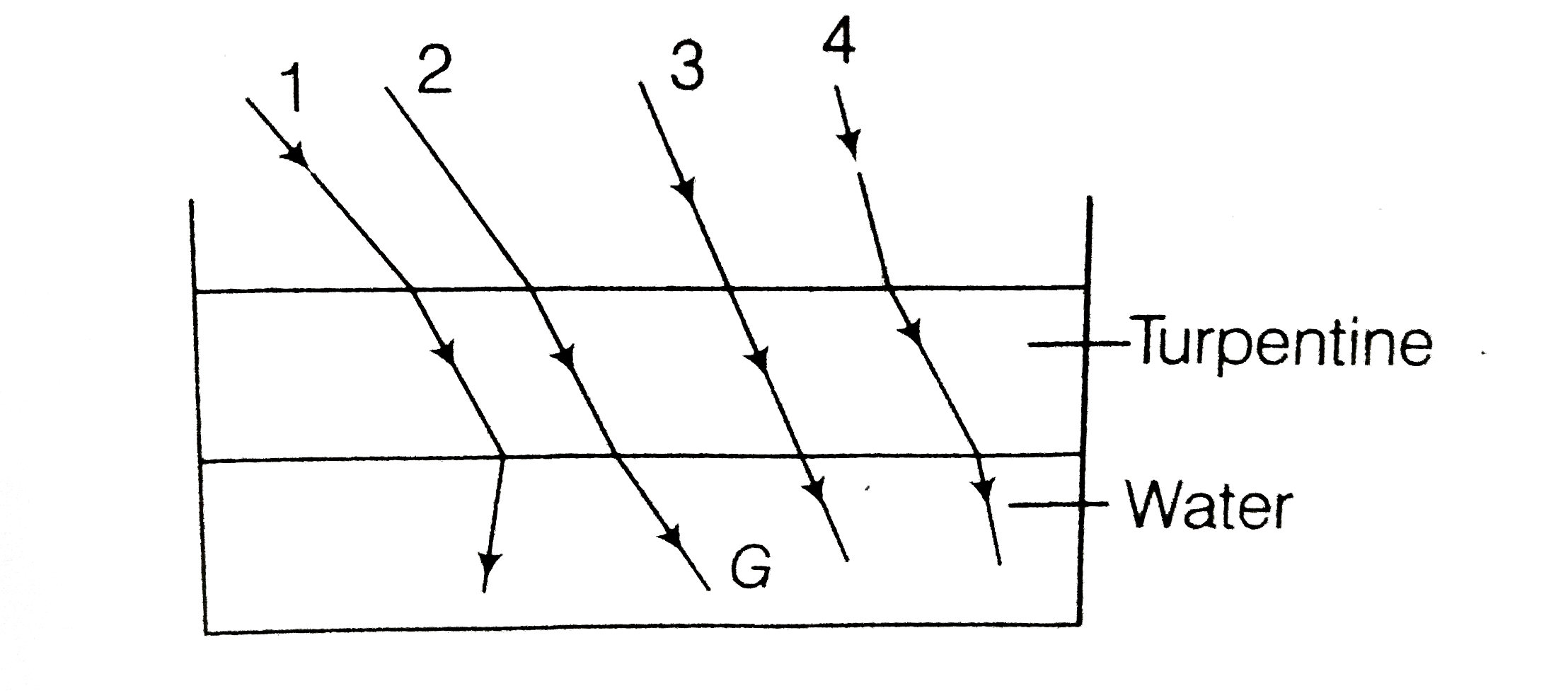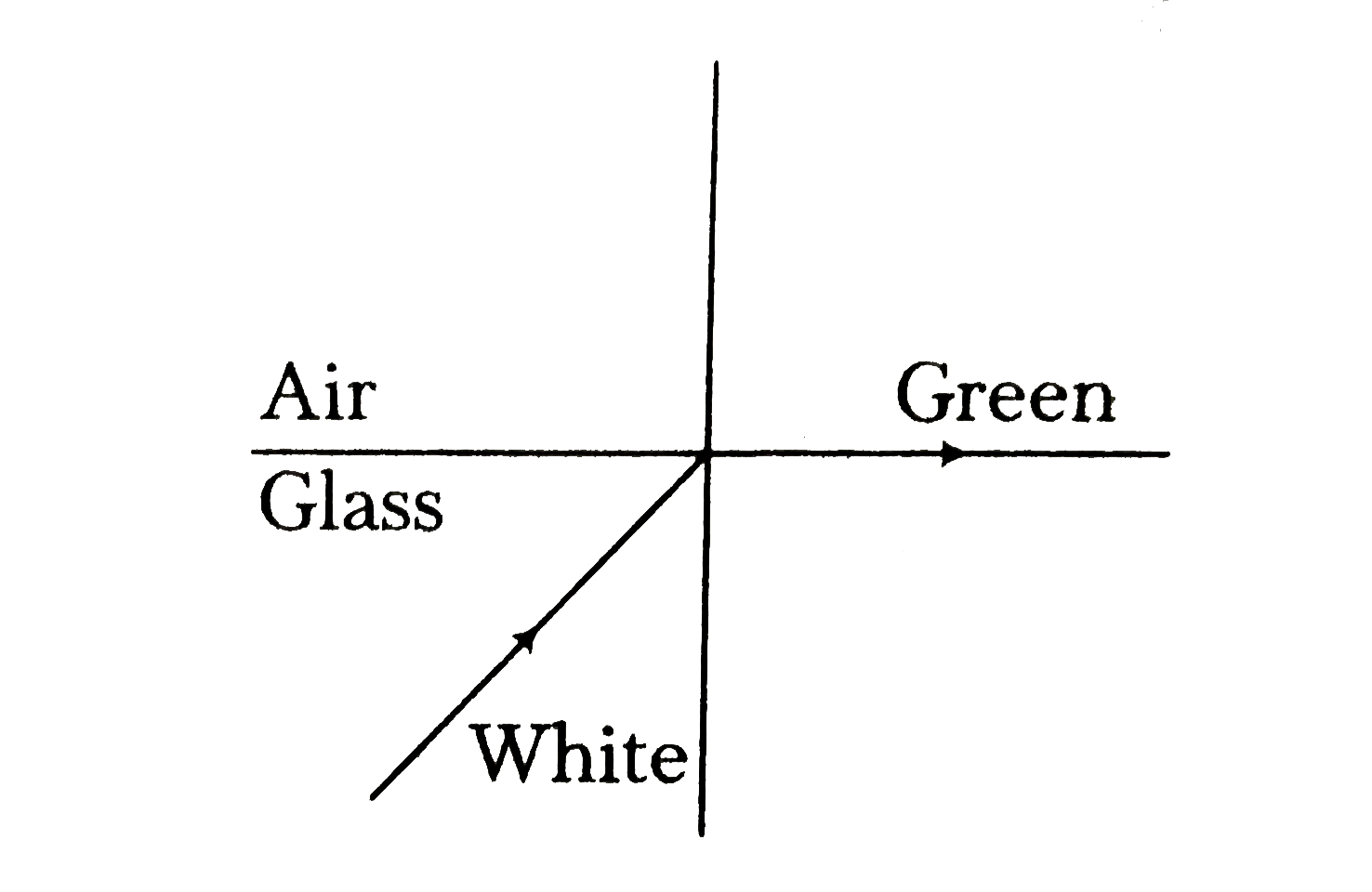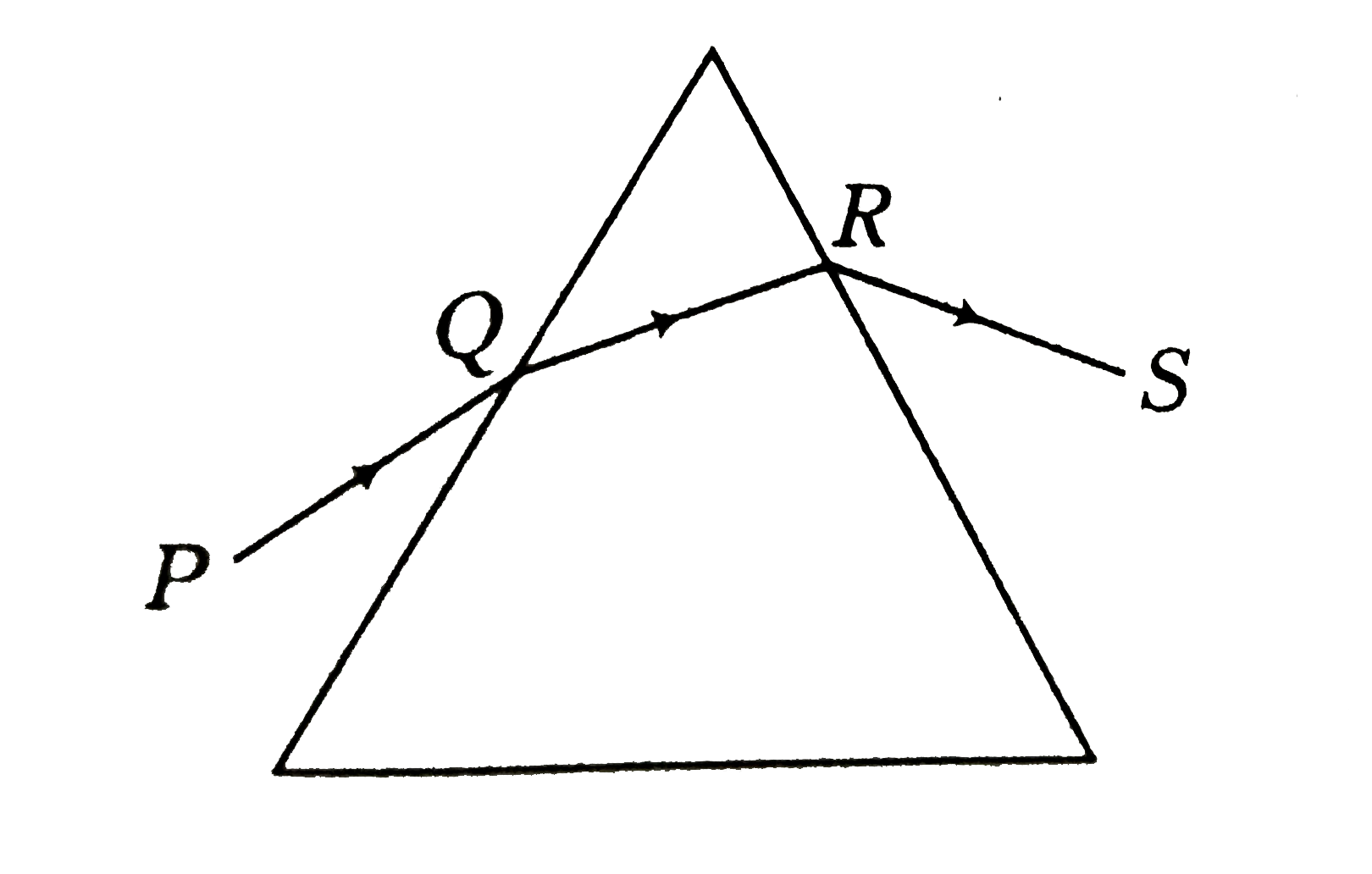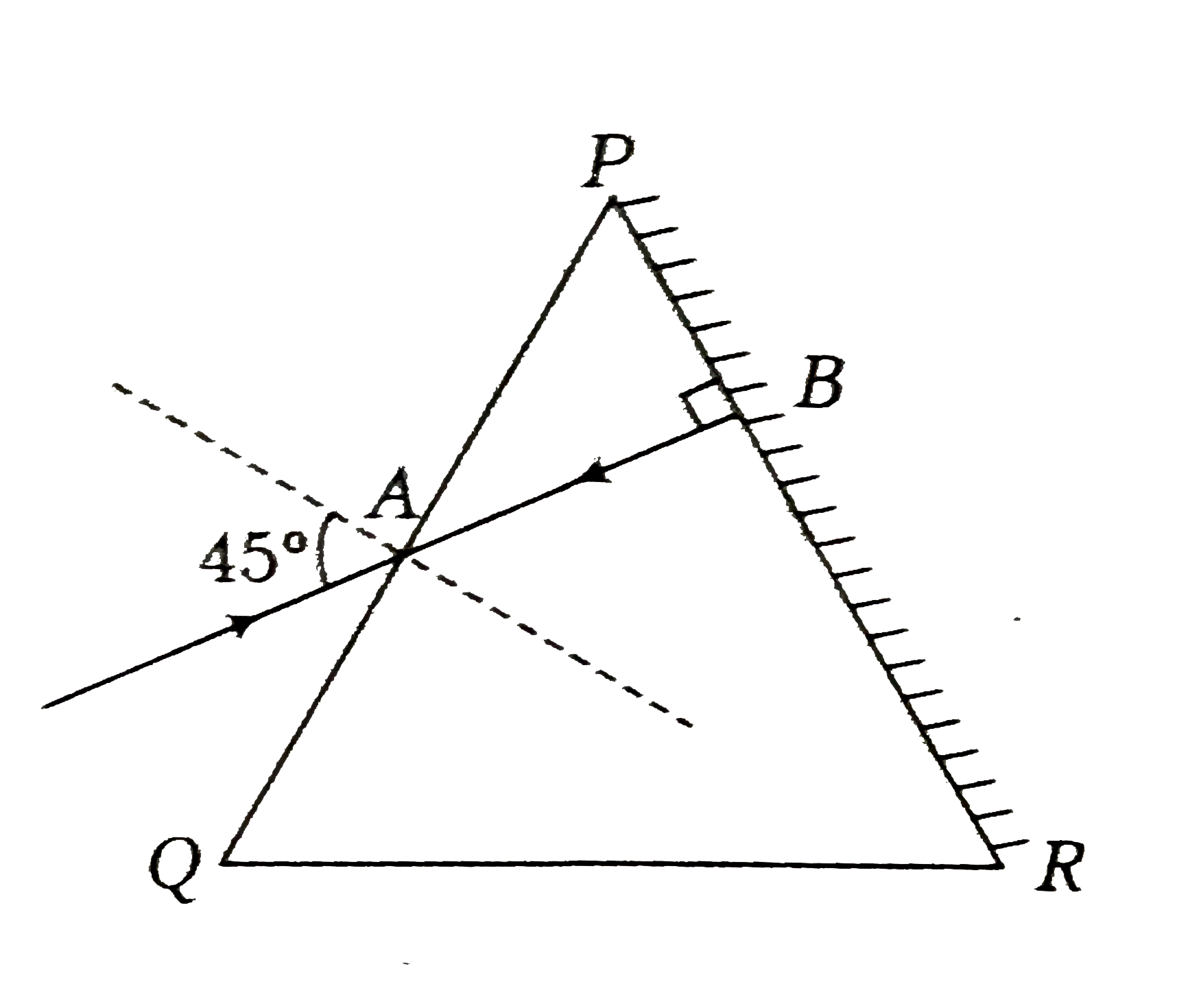Complete Solutions to Exercise 1 of chapter REFRACTION OF LIGHT of Class 12 book with complete answers and questions
| Class 12 | PHYSICS |
| Chapter | REFRACTION OF LIGHT |
| MHTCET PREP GUIDE | Exercise 1 |
| Number Of Questions | 49 |
| Academic Year | 2023-24 |
A light wave has a frequency of `4xx10^(14)Hz` and a wavelength of `5xx10^(-7)` meters in a medium. The refractive index of the medium is
View SolutionAbsolute refractive indices of glass and water are `3//2` and `4//3`. The ratio of velocity of light in glass and water will be
View SolutionWavelength of light in vaccum is 5890 Å, then its wavelength in glass (`mu=1.5`) will be
View SolutionA ray of light is lncident on a glass plate at `60^(@)`. The reflected and refracted rays are found to be mutually perpe:ndiwlar. The refractive index of the glass is
View SolutionA ray of light, travelling in a medium of refractive index mu, is incident at an angle i on a composite transparent plate consisting of three plates of refractive indices `mu_1,mu_2 and mu_3.` The ray emerges from the composite plate into a medium of refractive index `mu_4,` at angle x. Then,
View SolutionThe optical density of turpentine is higher than that of water while its mass density is lower. Figure shows, a layer of turpentine floating over water in a container. For which one of the four rays incident on turpentine in figure, the path shown is correct?

View SolutionThe `xz` plane separates two media `A` and `B` with refractive indices `mu_(1)` & `mu_(2)` respectively. A ray of light travels from `A` to `B`. Its directions in the two media are given by the unut vectors, `vec(r)_(A)=a hat i+ b hat j` & `vec(r)_(B) alpha hat i + beta hat j` respectively where `hat i` & `hat j` are unit vectors in the `x` & `y` directions. Then :
View SolutionIf refractive indices of glass and water with respect to air are `3//2` and `4//3` respectively, what is the refractive index of glass with respect to water ?
View SolutionHow does refractive (µ) of a material vary with respect to wavelength (`lambda`)? A and B are constants
View SolutionIf `(i)mu_(j)` represents refractive index when a light ray goes from mefium `i` to medium `j`, then the product `._(2)mu_(1)xx._(3)mu_(2)xx._(4)mu_(3)` is equal to
View Solution`µ_(1)` and `µ_(2)` are the refractive index of two mediums and `v_(1)` and `v_(2)` are the velocity of light in these in two mediums respectively. Then, the relation connecting these quantities is
View SolutionWhen light is refracted into a medium from vacuum
View SolutionAn under water swimmer is at a depth of 12 m below the surface of water. A bird is at a height of 18 m from the surface of water, directly above his eyes. For the swimmer the bird appears to be at a distance from the surface of water equal to (Refractive Index of water is 4/3)
View SolutionA vessel of depth 2d cm is half filled with a liquid of refractive index `mu_(1)` and the upper half with a liquid of refractive index `mu_(2)`. The apparent depth of the vessel seen perpendicularly is
View SolutionThree immiscibles transparent liquids with erefractive indices 3/2,4/3 and 6/5 are arranged one on top of another. The depth of the liquid are 3 cm, 4 cm and 6 cm respectively. The apparent depth of the vessel is
View SolutionThe optical path of a monochromatic light is same if it goes through 4.0 cm of glass or 4.5 cm of water. If the refractive index of glass is 1.53, the refractive index of the water is
View SolutionA diver at a depth of 12 m in water `(mu=4 //3)` sees the sky in a cone of semi-vertical angle
View SolutionIn a lake, a fish rising vertically to the surface of water uniformly at the rate of 3 m/s, observes a bird diving vertically towards the water at the rate of 9 m/s. The actual velocity of the dive of the bird is (given, refractive index of water = 4/3)
View SolutionA circular beam of light (diameter d) falls on a plane surface of a liquid. The angle of incidence is `45^(@)` and refractive index of the liquid is `mu`. The diameter of the refracted beam is
View SolutionWhich one of the following is not associated with the total internal reflection?
View SolutionThe wavelength of light in two liquids `x` and `y` is 3500 Å and 7000 Å, then the critical angle of x relative to y will be
View SolutionWhite light is incident on the interface of glass and air as shown in the figure. If green light is just totally internally reflected, then the emerging ray in air contains

View SolutionThe critical angle of a prism is `30^(@)`. The velocity of light in the medium is
View SolutionA ray of light travelling in a transparent medium falls on a surface separating the medium from air at an angle of incidence of `45^(@)`. The ray undergoes total internal reflection. If n is the refractive index of the medium with respect to air, select the possible value of n from the following.
View SolutionA glass slab has a critical angle of `30^(@)` when placed in air. What will be the criticle angle when it is placed in liquid of refractive index 6/5 index?
View SolutionWhen a ray is refracted from one medium into another, the wavelegths changes from `6000Å` to `4000Å`. The critical angle for a ray from the second medium will be
View SolutionIf a ray of light in a denser medium strikes a rarer medium at an angle of incidence i, the angles of reflection and refraction are respectively, r and r' If the reflected and refraction rays are at right angles to each other, the critical angle for the given pair of media is
View SolutionA ray of light is incident at an angle of `60^(@)` on one face of a prism of angle `30^(@)`. The ray emerging out of the prism makes an angle of `30^(@)` with the incident ray. The emergent ray is
View SolutionWhen light rays are incident on a prism at an angle of `45^(@)`, the minimum deviation is obtained. If refractive index of the material of prism is `sqrt(2)`, then the angle of prism will be
View SolutionA ray of light passes through an equilateral glass prism in such a manner that the angle of incidence is equal to the angle of emergence and each of these angles is equal to `3//4` of the angle of the prism. The angle of deviation is
View SolutionA ray of light is incident on an equilateral glass prism placed on a horizontal table. For minimum deviation which of the following is true?

View SolutionIn a thin prism of glass (refractive index 1.5), which of the following relations between the angle of minimum deviations `delta_(m)` and angle of prism r will be correct?
View SolutionThe refractive index of a prism for a monochromatic wave is `sqrt(2)` and its refracting angle is `60^(@)` for minimum deviation, the angle of indidence will be
View SolutionAngle of minimum deviation for a prism of refractive index 1.5 is equal to the angle of prism The angle of prism is `(cos 41^(@) = 0.75)`
View SolutionWhen light of wavelength `lambda` on an equilateral prism, kept on its minimum deviation position, it is found that the angle of deviation equals the angle the angle of the prism itself. The refractive index of the material of the prism for the wavelength `lambda` is
View SolutionUnder minimum deviation condition in a prism, if a ray is incident at an angle `30^(@)`, the angle between the emergent ray and the second refracting surface of the prism is
View SolutionTwo beam of red and violet colors are made to pass separately through a prism (angle of the prism is `60^(@)`). In the position of minimum deviation, the angle of refraction will be
View SolutionA ray of light passing through a prism of refraction angle `60^(@)` has to deviate by atleast `30^(@)`. Then, refractive index of prism should be
View SolutionA ray of light is incident at `60^(@)` on one face of a prism of angle `30^(@)` and the emergent ray makes `30^(@)` with the incident ray. The refractive index of the prism is
View SolutionOne face of prism of refracting angle `30^@` and refractive index `1.414` is silvered. At what angle must a ray of light fall on the unsilvered face so that it retraces its path out of the prism ?
View SolutionWhat is the angle of incidence for an equilateral prism of refractive index `sqrt(3)` so that the ray si parallel to the base inside the prism?
View SolutionAn equilateral prism deviates a ray through `45^(@)` for the two angles of incidence differing by `20^(@)`. The angle of incidence is
View SolutionThe face PR of a prism PQR of angle `30^(@)` is silvered. A ray is incident on face `PQ` at an angle of `45^(@)` as shown in figure. The refracted ray undergoes reflection on face PR and retraces its path. The refractive index of the prism is

View SolutionDispersive power depends upon
View SolutionA thin prism `P_(1)` with angle`6^(@)` and made from glass of refractive index 1.54 is combined with another thin prism `P_(2)` of refractive index 1.72 to produce dispersion without deviation. The angle of prism `P_(2)` will be
View SolutionA thin prism P with angle `4^(@)` and made from glass of refractive index 1.54 is combined with another thin prism P made from glass of refractive index 1.72 to produce dispersion without deviation The angle of prism P is
View SolutionThe rainbow is formed due to
View SolutionPhenomena associated with scattering is/are
View SolutionIn Raman effect, the scattering of light beams shows
View Solution
Exercise 1 questions and complete solutions for chapter REFRACTION OF LIGHT of MHTCET PREVIOUS YEAR PAPERS AND PRACTICE PAPERS of Class 12